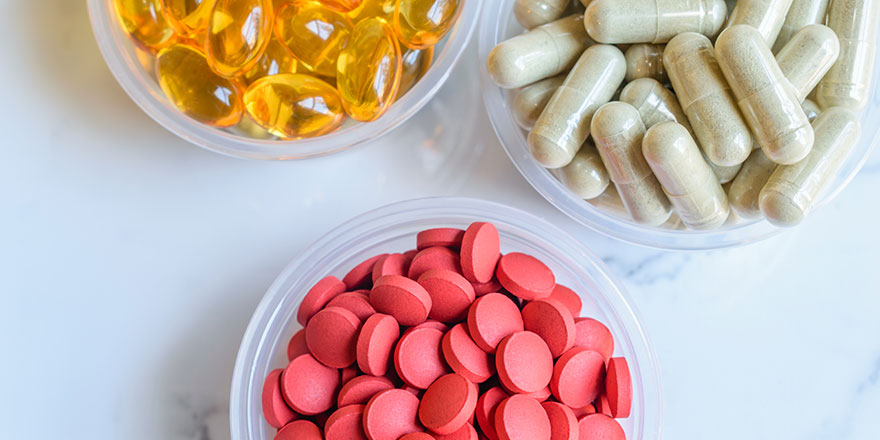As an athlete, you are always looking for ways to improve and beat your personal record. While this process is both tiring and fulfilling, it undoubtedly involves some extra work when it comes to maintaining your health.
It is important to ensure you are getting the right amount of nutrients and supplements if needed so your body can recover and build new muscle as you develop. Emerging
Several types of supplements have become popular in the fitness community for maintaining overall health, specifically when it comes to building muscle and absorbing nutrients.
Building Muscle: Creatine & Protein
Creatine is an amino acid found naturally within the muscles of your body. It helps provide energy and strength, allowing muscles to develop healthily and recover from potential strain more efficiently.
By helping the cells within your body to produce more energy, creatine can pump higher energy into your performance. Some people find it useful to use for increased energy during a high-intensity workout or heavy weightlifting.
Because creatine powder is so useful for developing muscles, it is commonly used amongst bodybuilders. No matter what kind of supplement you decide to use for muscle development, it is important to understand how to take it effectively.
Supplements like what is thrive should always provide a clear list of ingredients so you know what is going into your body and why.
Protein is also essential when it comes to your muscles. To build muscles and help them grow, your body needs to consume protein.
As an athlete, you are not only building muscles but also often repairing muscles when they are overworked or injured. Ideally, protein can be consumed in your food.
Things like meat, nuts, and dairy products are just a few foods that provide a good source of protein. However, it’s not always easy to get all the protein you need in the food you eat.
You can easily add a protein powder into the mix if you struggle to obtain your desired protein portion. Protein powders make it easy and fast to consume additional protein. Protein powders often come in a variety of forms and can be mixed with water or another drink.
Some protein powders are derived from things like whey, soy, or peas. You may want to investigate which source of protein is best for your body.
Absorbing Nutrients: Omega-3 Fatty Acids & Magnesium
While building muscle, you want to ensure the rest of your body is also getting its required nutrients. Omega-3 fatty acids are an extremely important nutrient found in fish, nuts, oils, and some seeds. You can also obtain them from supplements like fish oils.
Natural herbal supplements and extracts such as kratom can also benefit athletes, especially for those who prefer to smoke or vape. Companies like Kona Kratom offer great products in this field, which you can check them out here.
Omega-3 fatty acids provide energy to your body and are extremely good for your cardiovascular and immune system health. They help the lungs intake air and blood circulate through your body.
As your cardiovascular health improves, the nutrition provided from the omega-3 fatty acid can also help decrease inflammation in joints.
Along with anti-inflammatory properties, omega-3 fatty acids offer the potential to improve bone health and improve your quality of sleep. Optimal sleep, muscle recovery, and heart health are all vital contributions to healthy athletic performances.
Magnesium is another important mineral that is crucial for your body and health. It is important to take care of your overall health as an athlete, and this mineral helps with several different factors.
Consuming the proper amount of magnesium can improve muscle and nerve function, support your immune system, and even regulate blood pressure. Without the proper amount of magnesium, you might find yourself magnesium deficient.
Signs of magnesium deficiency vary from cramping and fatigue to nausea or loss of appetite. It is always a good idea to discuss potential health concerns or any changes in your standard diet or routine with a trusted health care professional.
A doctor can help determine whether you are currently getting enough magnesium, or if you need supplementation to help meet the required levels.
If you can get your magnesium from a natural diet, you might find yourself eating foods like legumes, dark leafy greens, whole grains, nuts, and seeds.
All these foods are rich in high levels of magnesium. If your diet is restricted or you are unable to get enough magnesium from your food, you may consider a magnesium supplement.
Through the process of improving your physical health and body, you may come across various supplements to add to your diet and workout regime.
Knowing what the common supplements are and what they do can help you determine which ones may or may not be helpful to you.














